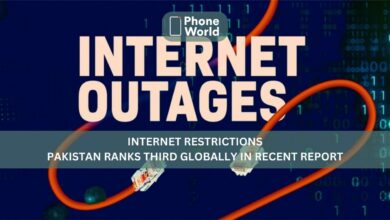Internet Security: The Biggest Predicament of Today’s Connected World

Due to the rise in Internet use, online presence has increased at a fast pace and so have the internet security risks. Network-based security threats have led to extensive identity theft and financial fraud. Spam, viruses, and spyware cause huge complications for internet users businesses. Immoral hackers and scam artists have plenty of opportunities to divert and modify the information.nternet security is a vast term that refers to several steps individuals and companies take in order to protect computers or computer networks that are linked to the Internet. Now with the advancement of technology many other devices have also came at risk including, smartphones, tablets, smart gadgets etc. Cisco, a manufacturer of networking equipment, estimates that there are almost 15 billion connected devices. By 2020, it believes, that number of connected devices could increase to 50 billion. One of the basic reality behind Internet security is that the Internet does not have a safe environment itself so the minute an individual comes online, he becomes a potential victim. Data sent over the travel through an ever-changing series of computers and network links makes it easier for predators, cyber criminals and corrupt businesses to access and misuse information.
A computer virus is a type of malware that is purposely written to gain access into the computer, without any awareness or permission
Hackers have two main techniques of causing problems: they either find a way to get into the system and then modify or take information from the inside, or they try to over-whelm the system with information from the outside so that it shuts down.
A common way used by hackers is e-mail spoofing. This involves sending authorized manipulators of a computer network false e-mail that seems as if it was sent by some official people. There are many types of spoofing attacks that malicious parties use. Some of the most common ways involve IP address spoofing attacks, ARP spoofing attacks and DNS server spoofing attacks. Phishing is also a common way used to hack websites. It is the attempt to acquire sensitive information such as usernames, passwords, and credit card details. Hackers can generate a copy of a website and tell people to enter personal information, which is then emailed to them. Phishing is a constant threat, and the perils are even more for social media such as Facebook, Twitter, and Google+ wheras, PayPal and eBay are two of the most common targets for phishing scams.
Be careful about who you accept as a friend on a social network, identity thieves might make fake profiles in order to access important information
Other security issues include viruses, or damaging programs that are introduced to computers or networks. A computer virus is a type of malware that is purposely written to gain access into the computer, without any awareness or permission. An infected file may cause loss of important data. It has the capacity to modify or replicate itself. Some viruses rewrite coding to make software programs unusable, while others terminate data. They adversely affect the systems performance. Computer viruses which replicate through a network in many ways, can be observed as denial-of-service attacks where the victim is not usually targeted. A denial-of-service (DoS) is any kind of attack where the attackers try to stop reliable workers from getting access to the service. The attacker usually sends many messages asking the network or server to validate requests that have invalid return addresses. Here are few precautions that users can take to save themselves from internet security threats.
- Be careful about who you accept as a friend on a social network. Identity thieves might make fake profiles in order to access important information.
- Select your social network carefully. Evaluate the site that you use and make sure you are aware about the privacy policy.
- Never open any attachment unless you know who it’s from and why they are sending it. Be cautious, opening any email attachments, even from your friends, especially if it has been forwarded to them.
- There should be a full back up of the system on a regular basis. The best way to clear-out an infected file is to substitute it with an original non-infected file.
- Always use an anti-virus software program, one with both an on-demand and an on-access scanner.
- Don’t allow your web browser to spontaneously run programs, such as MS Word or other programs through its e-mail program.
- Protect your computer and smartphone with strong, up-to-date security software.
- Learn to spot spam and scams. Phishing scams in email, IM, on social networking sites, or websites can look very legitimate. The only way not to become a victim of phishing scam is to never click on a link that has been sent.
- Strong passwords should be used. Passwords that are long, strong and that have nothing to do with your personal information are preferable.
- Only use trustworthy websites while placing online orders. Use a website that has a secure, encrypted connection for personal and financial information.
It is nearly impossible to secure every computer connected to the internet around the world, so the data exchange links are likely to be weak all the time. The amazing connectivity of the Internet age has led to massive social and economic benefits, but has also bring together numerous new challenges. In a fully connected world, Internet security threats continue to evolve, keeping ahead of the most advanced defenses. However, this should not deter the use of internet as the benefits of the internet outweighs the risk associated with it.
PTA Taxes Portal
Find PTA Taxes on All Phones on a Single Page using the PhoneWorld PTA Taxes Portal
Explore NowFollow us on Google News!





